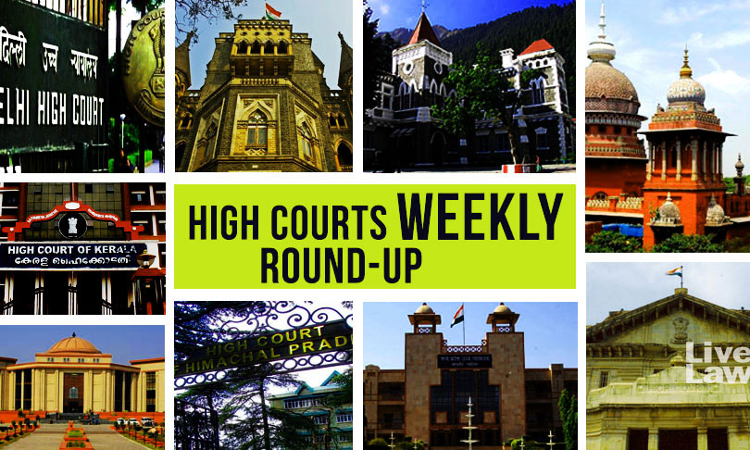- Home
- /
- News Updates
- /
- High Courts Weekly Roundup
High Courts Weekly Roundup
Akshita Saxena
16 Aug 2020 5:25 PM IST
Week Commencing From August 10, 2020 To August 16, 2020 Bombay High Court 1) 'One Fine Day When The Relationship Turned Sour, She Filed A Complaint'; Bombay HC Grants Bail To Man Accused Of Rape [Ataullah Fakruddin Ansari v. The State of Maharashtra] The bench of Justice Bharati Dangre granted bail to a man accused of rape by a 24-year-old woman who befriended him on...
Tags
Next Story



